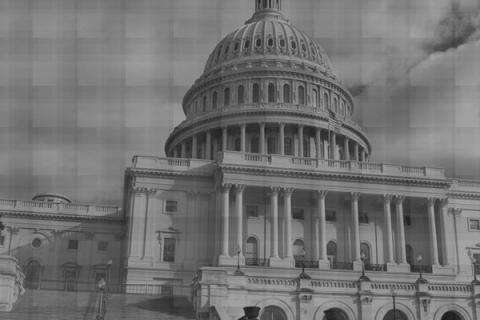A battle between the town of Isleton, California and federal prosecutors over medicinal marijuana cultivation perfectly illustrates the stakes involved in the Tenth Amendment debate. Earlier this month, a group planning to build an industrial medical marijuana farm in Isleton called the project off after receiving a stern warning from the feds that its construction would not be tolerated and could result in legal action.
Despite past assurances from the Obama Administration-- including Attorney General Eric Holder-- that enforcing federal drug prohibitions when they are in conflict with state laws would not be a priority for a Justice Department strained for resources, the administration doesn't seem too keen any longer on allowing open violations of federal law to slide. As the "Tax Cannabis Act" picked up momentum and media attention before ultimately failing at the ballot box last fall, the Justice Department took a hard line against major drug operations, even in states that might legalize them, with Eric Holder saying:
"Regardless of the passage of this or similar legislation, the Department of Justice will remain firmly committed to enforcing the Controlled Substances Act (CSA) in all states. We will vigorously enforce the CSA against those individuals and organizations that possess, manufacture or distribute marijuana for recreational use, even if such activities are permitted under state law."
This Spring, as the sleepy Sacramento County town of Isleton prepared to grow marijuana crops for the medicinal uses approved in the state of California (though not by federal law), U.S. Attorney Benjamin Wagner warned:
"Individuals who elect to operate industrial marijuana cultivation facilities will be doing so in violation of federal law... even if such activities are permitted under state law."
The U.S. Attorney is making a profound legal assertion here with a number of ramifications for the legal relationship between states and the federal government in Washington. The debate over drug policy extends beyond the alleged merits and disadvantages of liberalizing drug laws, and right into the realm of federalism and Constitutional Law.
The Tenth Amendment to the U.S. Constitution says:
"The powers not delegated to the United States by the Constitution, nor prohibited by it to the States, are reserved to the States respectively, or to the people."
Interpreting this amendment to give each of the states the power to review federal actions for their Constitutionality-- a power typically thought of today as being vested only in the federal courts-- and the right to nullify and void those acts of the federal government which a state finds to be in violation of the Constitution, Thomas Jefferson wrote in the Kentucky Resolutions of 1798 that:
"...whensoever the general government assumes undelegated powers, its acts are unauthoritative, void, and of no force; that to this compact each state acceded as a state, and is an integral party; that this government, created by this compact, was not made the exclusive or final judge of the extent of the powers delegated to itself, since that would have made its discretion, and not the Constitution, the measure of its powers..."
Thomas Jefferson argues here that if a state finds a federal law to be in violation of the limits on its powers, which are clearly defined in the Constitution, that the state may void the federal law and act in opposition to it. We've seen this happen in California and several other states with the passage of medical marijuana laws that run counter to federal prohibitions on the possession and use of marijuana.
Some proponents of federalized drug policy argue that federal drug prohibitions are Constitutional because they fall under the powers enumerated in the Interstate Commerce clause. A series of federal court rulings and legal precedents may support their claim, but it is also worth noting that the Tenth Amendment debate centers on the idea that states, not federal courts, should be the final arbiters of the Constitution. And federal precedent did not always favor the federalized approach to drug policy, otherwise an entire Constitutional amendment would not have been necessary to prohibit alcoholic beverages-- Congress could have simply passed a law.
Important legal questions for Californians to ask are: 1) Is the power to regulate the sale and use of drugs specifically granted to the United States Congress by the Constitution? And: 2) Should only federal courts have an ultimate say on that matter, or as Jefferson argues, is it up to the states to decide? An important theoretical question to ask is: 3) Who does it make the most sense to have an ultimate say on local drug policies in California, the federal government or California?

